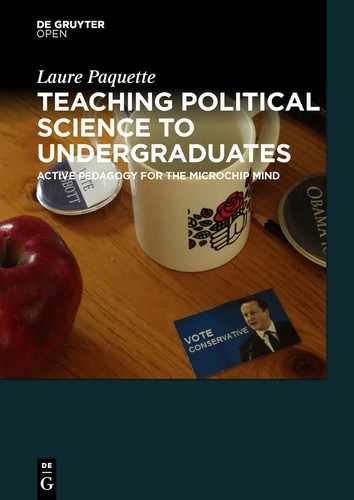Book Description
By 2020, half of the world’s population and most university students will have a supercomputer in their pockets. This revolution will affect the way students respond to higher education. The university classroom must henceforth engage students, and the classic lecture format alone might not be enough to do so. This book answers the question how university students can learn in the classroom what they cannot learn in any other way.
The answer is inspired by options that are not available to political scientists – in the way that they are in the laboratories for the sciences, in the performances for the live arts, and in the studios for visual arts – as well as ideas that are already present, but not widespread in the discipline: problem-solving and case studies, as in the professional schools, and simulation exercises in many other disciplines. This book proposes therefore an active pedagogy for political science, at a time when active pedagogy is more important than ever.
Prof. Laure Paquette, PhD, has been a visiting researcher or professor in 23 countries. She has advised several foreign governments as well as her own, Canada, and has published extensively in four languages. This is her sixteenth book.
